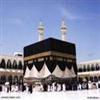
The divine obligation of Hajj pilgrimage is one of the important rituals of Islam. It consists of prayers, supplications to God, suppression of the ego, abstention from even lawful pleasures, and enduring of the problems of travel.
Prophet Mohammad (Blessings of God upon him and his progeny) has emphasized the importance of the Hajj pilgrimage which is obligatory once in a lifetime for those who can financially afford the journey and have the health to endure the travails. Once a Bedouin Arab told the Prophet that he couldn’t perform the Hajj pilgrimage despite having the necessary means, and thus in order to earn a reward equal to that of the Hajj he was ready to spend of his abundant wealth. The Prophet asked him to have a look a Mount Abu Qobais which is adjacent to the holy Ka’ba, and said even if you possess as much gold as this mount and spent it in the path of God, you will not get the reward that a Hajj pilgrim gains.
In the holy Qur’an the importance of the Hajj has been emphasized in many ayahs. In ayah 97 of Surah Aal-e Imran we read:
“And it is the duty of mankind toward Allah to make pilgrimage to the House —for those who can afford the journey to it— and should anyone renege [on his obligation], Allah is indeed without need of the creatures.”
This ayah means that Hajj pilgrimage is obligatory for those who can afford it, and according to the Arabic wording of this ayah, neglecting to perform the Hajj while having the means is tantamount to blasphemy. The holy Qur’an says the Ka’ba, the symbol of monotheism, is the first ever structure built on earth by Adam, the father of the human race. It was built on God’s commandment and hence it is a blessed place. In ayah 96 of Surah Aal-Imran we read:
“Indeed the first house to be set up for mankind is the one at Bakkah; blessed and a guidance for all nations.”
Bakkah is the name of that particular place in Mecca where the Masjid al-Haraam or the Sacred Mosque stands. The Ka’ba has numerous spiritual, material, political and even personal and social blessings. The pilgrims view themselves as a mere drop in a vast ocean while performing the Hajj along with people from all over the world. Here the attention is solely on God Almighty, and the pilgrims endeavor to purify their souls. From political and social aspects, when the pilgrims see the consolidated ranks of monotheists they do not feel alone and realize the power of Muslims, with trust in God of the eventual triumph over the enemies of humanity.
The Ka’ba has stood firm in the face of the plots of the enemies of humanity throughout history. Around it are clear signs of God such as the footprints of Prophet Abraham on the spot where he stood and prayed to God after having rebuilt the Ka’ba. In Ayahs 29 and 33 of Surah Hajj, the Ka’ba is referred to as the Ancient House. Ancient means free of any domination by anyone, since it is attributed to God and its Own is none but God Himself. For this reason, the Hajj pilgrims circumambulate the symbolic house of God to refresh and strength their faith. In ayah 26 of Surah Haj God attributes the Ka’ba to himself and says:
“When We settled for Abraham the site of the House [saying], Do not ascribe any partners to Me, and purify My House for those who go around it, and those who stand [in it for prayer], and those who bow and prostrate.”
Thus, since the glory and infinite power of God Almighty is beyond imagination, likewise the blessings of the Ka’ba cannot be imagined. Therefore God assigned two of his best Prophets, namely Abraham and Ishmael, to rebuilt the Ka’ba and purify, He says in ayah 125 of Surah Baqarah:
“We charged Abraham and Ishmael [with its upkeep, saying], ‘Purify My House for those who go around it, [for] those who make it a retreat and [for] those who bow and prostrate.”
Thus the holy Ka’ba is the House of purity, and whoever goes around it ought to purify his soul and spirit through acts of devotion and firm intention to resist satanic temptations. Regarding maintenance of the Ka’ba, the holy Quran stresses that the disbelievers do not have the right to construct the mosques of God and says in ayah 17 of Surah Towbah:
“The polytheists may not maintain Allah’s mosques while they are witness to their own unfaith.”
In the next ayah of Surah Towbah, God introduces those who are qualified to maintain the House of God as follows and says:
“Only those shall maintain Allah’s mosques who believe in Allah and the Last Day, and maintain the prayer and give the zakāt, and fear no one except Allah. They, hopefully, will be among the guided.”
Therefore not only infidels and polytheists do not have the right to maintain mosques, especially the Masjid al-Haraam, but also the faithless amongst the Muslims have no right to call themselves custodians of the holy shrine. Thus, in view of these undeniable facts, Muslims ought to awaken their conscience and not allow themselves to be deceived by so-called Muslims who are actually in the service of the US, the Zionists and the other enemies of God and humanity.
source : irib













